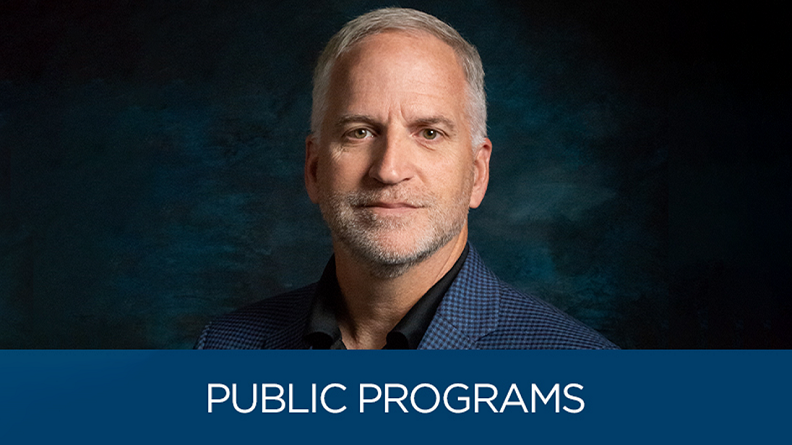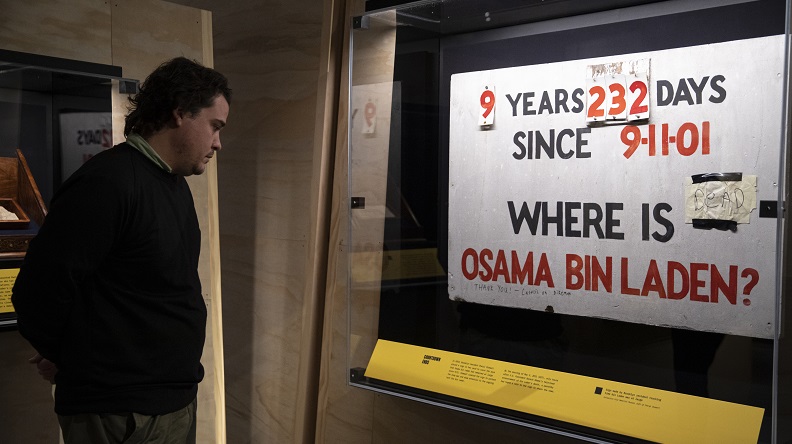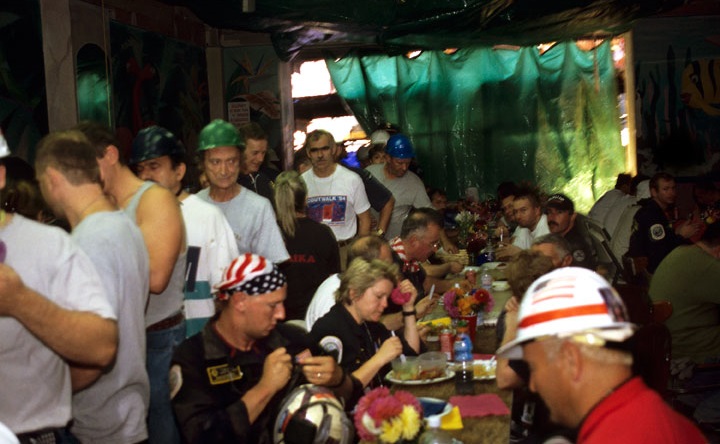Make a donation to the museum
Former NGA Director Describes Role of Intelligence Community in Hunt for Bin Laden
Former NGA Director Describes Role of Intelligence Community in Hunt for Bin Laden

On Friday, the 9/11 Memorial & Museum began an exciting new public program series hosted online where participants can submit questions to speakers during the conversation. Since we cannot gather during the temporary closure, this live medium allows us to continue the conversations that deepen our collective understanding of the ongoing impact of the 9/11 attacks.
This series kicked off with “Nine Years Later: Finding Osama Bin Laden,” a conversation between Robert Cardillo, former director of the National Geospatial-Intelligence Agency (NGA) and current fellow at Georgetown University, and Clifford Chanin, Executive Vice President and Deputy Director for Museum Programs.
During the program, Cardillo described his time in the Obama administration in the weeks leading to Operation Neptune Spear. He offered several observations about leadership and collaboration in the government that were shaped by the team’s experience of 9/11.
Cardillo said his mind often took him to “that beautiful September morning” (referring to September 11, 2001). The attacks created a unified objective in the government that bonded previously divided agencies in a single-minded purpose. That purpose inspired new forms of collaboration that enabled them to complete the mission for 9/11 victims’ families.
After discussing the anniversary of the raid, Cardillo explained the role of the intelligence community in addressing public health crisis like Ebola in 2013. The threefold purpose of his former agency, NGA, is to “know the Earth, show the way, and understand the world.” In a pandemic, intelligence plays an essential role in identifying changes in community-living patterns. These indicators can equip public health experts as they work to contain the spread and narrow the gap from the time people become symptomatic and receive a diagnosis.
In that work of information gathering, Cardillo reiterated his point that the United States has incredible capabilities and added that intelligence work guided by the principle of transparency and respect for the balance of civil liberties is healthy for democracy.
For those who were unable to join the program live, you can stream the full program, and check 911memorial.org/programs to learn of forthcoming programs.
By 9/11 Memorial Staff
Previous Post
Brooklyn Yard Sign Symbolizes Hunt for Bin Laden

On May 1, 2011, people gathered to celebrate in Times Square upon news of the death of Osama bin Laden. A few miles away in Brooklyn, Cheryl Stewart had a sign in her front yard that read, “Where is Osama bin Laden?” A tally on the sign counted the number of days the world’s most elusive terrorist remained free.
Next Post
Food for the Soul: The Restaurants of Ground Zero

In the days following 9/11, chefs, charitable organizations, and volunteers with a zest for cooking answered the call to help their fellow New Yorkers, joining together as a community to share food for both body and soul.